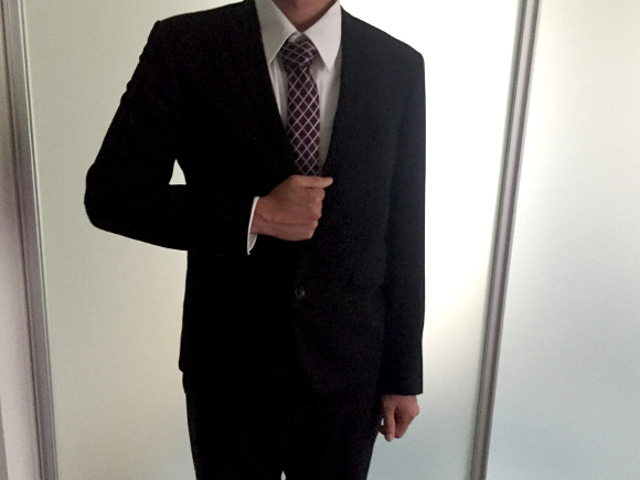
P.K. Sanjun thinks back to his first full-time job, and the boss who told him everything.
The acronym LGBT is cropping up more and more in the news lately, especially in Japan where recent breakthroughs in kids’ TV programming and protests against representative Mio Sugita’s anti-LGBT comments have been making headlines. People are increasingly realizing how likely it is that they work with, are related to, or watch people in the LGBT demographic onscreen every day.
Our Japanese-language reporter P.K. Sanjun is acquainted with many people that Japan terms as “sexual minorities”. The increase in media attention has gotten him to think about the first gay person he ever met, a company supervisor at the job he worked 15 years ago. After deliberating on it, he decided to share the story with the readers of SoraNews24.
It all started 15 years ago, when P.K. was a fresh-faced office worker aged just 25 years old. He was in the employ of a small security consultations company about three minutes’ walk away from Tokyo station. Looking back, P.K. found the company to be a little suspicious, but at least he got to work under a great guy: Mr. Nakata (not his real name).
▼ Tokyo: a city of many companies, many workers, many sexualities
The company had about three branches under one boss’ supervision, and when P.K. joined it had about 10 employees. The median age of those employees was roughly 50 years old, however, and so the sprightly and youthful P.K. stuck out like a sore thumb. As you might expect, this made for a grueling work environment. No one wants to be the youngest guy at work, but especially not in Japan where seniority is counts for so much in the workplace.
The president of the company when P.K. joined was equal parts genius and madman. His bellowing voice could lecture for hours after hours, and while he wasn’t a bad person he ended up causing the inexperienced P.K. an unbearable amount of stress due to his overbearing personality. “Now I think on it,” P.K. commented, “that place was really like a black company back then,” he says, using the term in Japan that describes companies that have little or no value for their employees’ well-being.
But then, about six months after P.K. joined, a fresh new boss appeared!
▼ We didn’t have any photographs, so SoraNews24 illustrator Shoko Inaba rendered him in handsome anime guy form.
Decorated with numerous achievements in the field of security consultation, Nakata was an accomplished gent with an impressive resume, while being just four years older than P.K. He’d attended college in Osaka, and always used a bit of Kansai dialect when he spoke; his personality was light and friendly, and he had a great sense of humor. He was handsome, too! P.K. thanked the stars for blessing him with such a refreshing boss.
Perhaps due to their closeness in age, Mr. Nakata took incredibly good care of P.K., and while he let him know in no uncertain terms where he was on the corporate food chain (the bottom, with all the other rookie employees) he would defend P.K. against criticism and cheer him up as much as he might reprimand him or chide him for mistakes.

What a cool guy! But he didn’t just defend P.K. unthinkingly. In fact, he was a master of scolding in short, strict bursts, like “You were in the wrong there, you know? Watch it.” It was just the sort of kind structure that a young man working in his first job needed to become an upstanding member of society.
▼ Nakata, viewed through the eyes of a young P.K.
Of course, due to their closeness in age they often found themselves teamed up when socializing at work events. The office would go for drinks or three or four times a week, and Nakata told a wide-eyed P.K. all manner of sincere and interesting stories. These stories weren’t just limited to the workplace, either! He would often mix in details from his private life.
And then one day, at one of their ordinary outings to a local bar, P.K. was just heading back from ordering a drink when Nakata dropped a bombshell.

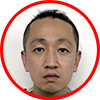









Surprised as P.K. was, it rapidly gave way to curiosity. Once Nakata had come out to him, it only took P.K. seconds to accept him, but it took much longer for Nakata to answer all of his burning questions about homosexuality.

All of these words are used in Japan to address homosexuality, though okama can also carry a nuance of cross-dressing.




Though P.K. ended up quitting from that company, he remained in contact with Nakata, who even helped him line up a new job after he left! Ever since the conversation where Nakata came out to him, P.K. has noticed a serious improvement in his own abilities to discern whether other men are gay or not.
▼ P.K. employing his gaydar in the office
P.K. has also made many more gay friends since learning about Nakata, with the main point of commonality being that they were all kind, caring people. P.K. never once felt uncomfortable around them. One of these friends helped shed some light on why gay people in particular are so good at recognizing the needs of others:
“A lot of us have to hide essential facts of who we are, so we’re always paying an intense amount of attention to the people around us. So being very kind and considerate to others is a good way to guarantee against cruel allegations. Put yourselves in our shoes: it’s freeing to be yourself, but sometimes it’s hard to tell in what ways!”
This view may be from just one person, but gay and lesbian individuals do tend to spend a lot of time observing other people. And it’s no surprise that hiding your true self 24/7 would wear on your body and soul. Nakata’s tired expression made a lot more sense to P.K. with that context.
The world does seem like it is gradually beginning to grow more accepting of LGBT people, even the famously conservative Japan. However, there are still people eager to express their disgust. P.K. in particular appreciates how people’s attitudes can differ, but he left with this plea:
“No matter how you feel about LGBT people, I implore you to at least avoid harmful remarks. You aren’t the only person living in this world, you know. Humanity is made up of lots of different kinds of people, all striving to live together.”
Images ©SoraNews24
[ Read in Japanese ]


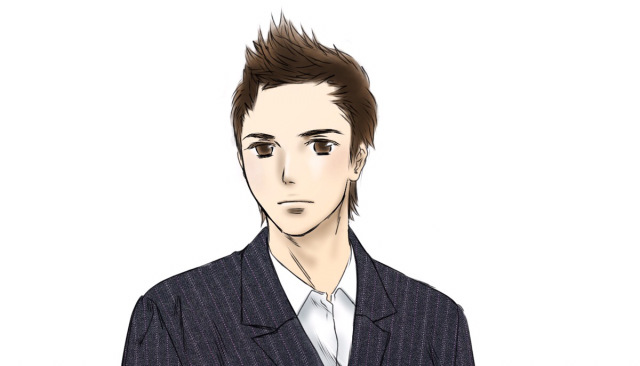

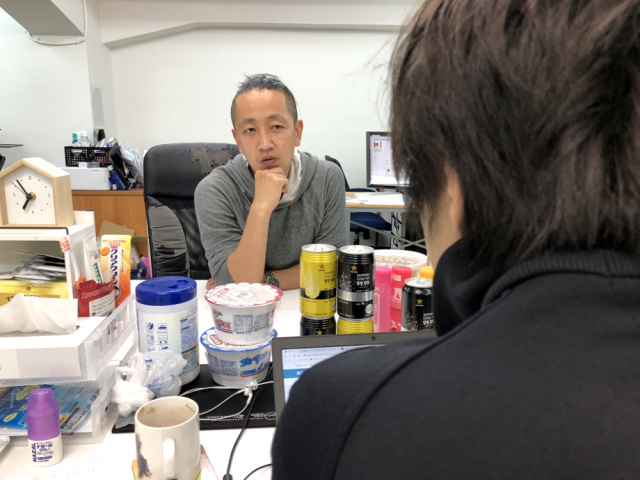
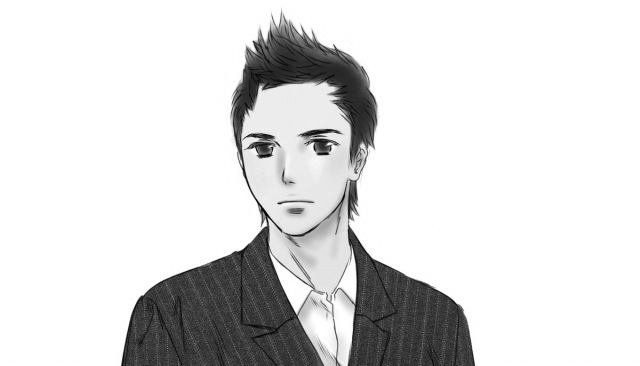
 With Japan’s day care shortage, how hard is it to bring your baby to work with you? We experiment
With Japan’s day care shortage, how hard is it to bring your baby to work with you? We experiment Five things about New York that surprised our Japanese reporter
Five things about New York that surprised our Japanese reporter The twin joys and dual sadnesses of eating ramen in the U.S.
The twin joys and dual sadnesses of eating ramen in the U.S. How to make your own sold-out Uniqlo Airism mask in less than two minutes
How to make your own sold-out Uniqlo Airism mask in less than two minutes Spider-Man: No Way Home Japanese dub voice actor is…our reporter P.K. Sanjun!
Spider-Man: No Way Home Japanese dub voice actor is…our reporter P.K. Sanjun! Red light district sushi restaurant in Tokyo shows us just how wrong we were about it
Red light district sushi restaurant in Tokyo shows us just how wrong we were about it McDonald’s new Happy Meals offer up cute and practical Sanrio lifestyle goods
McDonald’s new Happy Meals offer up cute and practical Sanrio lifestyle goods Japan’s massive matcha parfait weighs 6 kilos, contains hidden surprises for anyone who eats it
Japan’s massive matcha parfait weighs 6 kilos, contains hidden surprises for anyone who eats it Anime girl English teacher Ellen-sensei becomes VTuber/VVTUber and NFT
Anime girl English teacher Ellen-sensei becomes VTuber/VVTUber and NFT Sandwiches fit for a sumo served up in Osaka【Taste Test】
Sandwiches fit for a sumo served up in Osaka【Taste Test】 Historical figures get manga makeovers from artists of Spy x Family, My Hero Academia and more
Historical figures get manga makeovers from artists of Spy x Family, My Hero Academia and more Studio Ghibli releases new action figures featuring Nausicaä of the Valley of the Wind characters
Studio Ghibli releases new action figures featuring Nausicaä of the Valley of the Wind characters All-you-can-drink Starbucks and amazing views part of Tokyo’s new 170 meter-high sky lounge
All-you-can-drink Starbucks and amazing views part of Tokyo’s new 170 meter-high sky lounge Kyoto’s 100 Demons yokai monster parade returns!
Kyoto’s 100 Demons yokai monster parade returns! Japanese ramen restaurants under pressure from new yen banknotes
Japanese ramen restaurants under pressure from new yen banknotes French Fries Bread in Tokyo’s Shibuya becomes a hit on social media
French Fries Bread in Tokyo’s Shibuya becomes a hit on social media New private rooms on Tokaido Shinkansen change the way we travel from Tokyo to Kyoto
New private rooms on Tokaido Shinkansen change the way we travel from Tokyo to Kyoto Studio Ghibli glasses cases let anime characters keep an eye on your spectacles
Studio Ghibli glasses cases let anime characters keep an eye on your spectacles Tokyo Tsukiji fish market site to be redeveloped with 50,000-seat stadium, hotel, shopping center
Tokyo Tsukiji fish market site to be redeveloped with 50,000-seat stadium, hotel, shopping center Beautiful Ghibli sealing wax kits let you create accessories and elegant letter decorations【Pics】
Beautiful Ghibli sealing wax kits let you create accessories and elegant letter decorations【Pics】 Studio Ghibli releases Kiki’s Delivery Service chocolate cake pouches in Japan
Studio Ghibli releases Kiki’s Delivery Service chocolate cake pouches in Japan New definition of “Japanese whiskey” goes into effect to prevent fakes from fooling overseas buyers
New definition of “Japanese whiskey” goes into effect to prevent fakes from fooling overseas buyers Our Japanese reporter visits Costco in the U.S., finds super American and very Japanese things
Our Japanese reporter visits Costco in the U.S., finds super American and very Japanese things Studio Ghibli unveils Mother’s Day gift set that captures the love in My Neighbour Totoro
Studio Ghibli unveils Mother’s Day gift set that captures the love in My Neighbour Totoro New Japanese KitKat flavour stars Sanrio characters, including Hello Kitty
New Japanese KitKat flavour stars Sanrio characters, including Hello Kitty More foreign tourists than ever before in history visited Japan last month
More foreign tourists than ever before in history visited Japan last month New Pokémon cakes let you eat your way through Pikachu and all the Eevee evolutions
New Pokémon cakes let you eat your way through Pikachu and all the Eevee evolutions Sales of Japan’s most convenient train ticket/shopping payment cards suspended indefinitely
Sales of Japan’s most convenient train ticket/shopping payment cards suspended indefinitely Sold-out Studio Ghibli desktop humidifiers are back so Totoro can help you through the dry season
Sold-out Studio Ghibli desktop humidifiers are back so Totoro can help you through the dry season Japanese government to make first change to romanization spelling rules since the 1950s
Japanese government to make first change to romanization spelling rules since the 1950s Ghibli founders Toshio Suzuki and Hayao Miyazaki contribute to Japanese whisky Totoro label design
Ghibli founders Toshio Suzuki and Hayao Miyazaki contribute to Japanese whisky Totoro label design Doraemon found buried at sea as scene from 1993 anime becomes real life【Photos】
Doraemon found buried at sea as scene from 1993 anime becomes real life【Photos】 Tokyo’s most famous Starbucks is closed
Tokyo’s most famous Starbucks is closed One Piece characters’ nationalities revealed, but fans have mixed opinions
One Piece characters’ nationalities revealed, but fans have mixed opinions We asked a Uniqlo employee what four things we should buy and their suggestions didn’t disappoint
We asked a Uniqlo employee what four things we should buy and their suggestions didn’t disappoint Princesses, fruits, and blacksmiths: Study reveals the 30 most unusual family names in Japan
Princesses, fruits, and blacksmiths: Study reveals the 30 most unusual family names in Japan Japan’s first-ever wanko soba conveyor belt restaurant opens in Tokyo
Japan’s first-ever wanko soba conveyor belt restaurant opens in Tokyo What it’s like to spend the night in a Pokémon hotel room
What it’s like to spend the night in a Pokémon hotel room We asked a Uniqlo employee what four things we should buy and their suggestions didn’t disappoint
We asked a Uniqlo employee what four things we should buy and their suggestions didn’t disappoint Hands-on with Pokémon Legends: Arceus from someone vomit-inducingly bad at action games
Hands-on with Pokémon Legends: Arceus from someone vomit-inducingly bad at action games The time P.K. flatly refused a request from his deceased best friend’s mom at their first meeting
The time P.K. flatly refused a request from his deceased best friend’s mom at their first meeting Our Japanese reporter visits Costco in the U.S., finds super American and very Japanese things
Our Japanese reporter visits Costco in the U.S., finds super American and very Japanese things Dom Dom’s Squid Devil Burger is here to shake up the gourmet scene like a tokusatsu bad guy
Dom Dom’s Squid Devil Burger is here to shake up the gourmet scene like a tokusatsu bad guy Which Japanese convenience store sells the best pizza bun?【Taste test】
Which Japanese convenience store sells the best pizza bun?【Taste test】 The best place to eat Japanese breakfast for US$2: Cheap food hack for locals and tourists
The best place to eat Japanese breakfast for US$2: Cheap food hack for locals and tourists We attempt to buy Starbucks Japan’s 60,000 yen lucky beckoning cat
We attempt to buy Starbucks Japan’s 60,000 yen lucky beckoning cat The future is now with full face sunglasses
The future is now with full face sunglasses We try five menu recommendations from a clerk at CoCo Ichibanya and almost fall in love
We try five menu recommendations from a clerk at CoCo Ichibanya and almost fall in love Edible culture shock: Our Japanese reporter tries American barbecue for first time【Taste test】
Edible culture shock: Our Japanese reporter tries American barbecue for first time【Taste test】 We interview Jurassic World: Fallen Kingdom stars Chris Pratt and Bryce Dallas Howard in Japan
We interview Jurassic World: Fallen Kingdom stars Chris Pratt and Bryce Dallas Howard in Japan What the heck is okame soba?
What the heck is okame soba? Burger King Japan’s new Ninniku Garlic Burger does not live up to the hype
Burger King Japan’s new Ninniku Garlic Burger does not live up to the hype
Leave a Reply